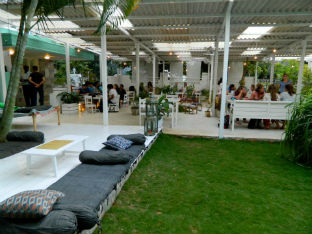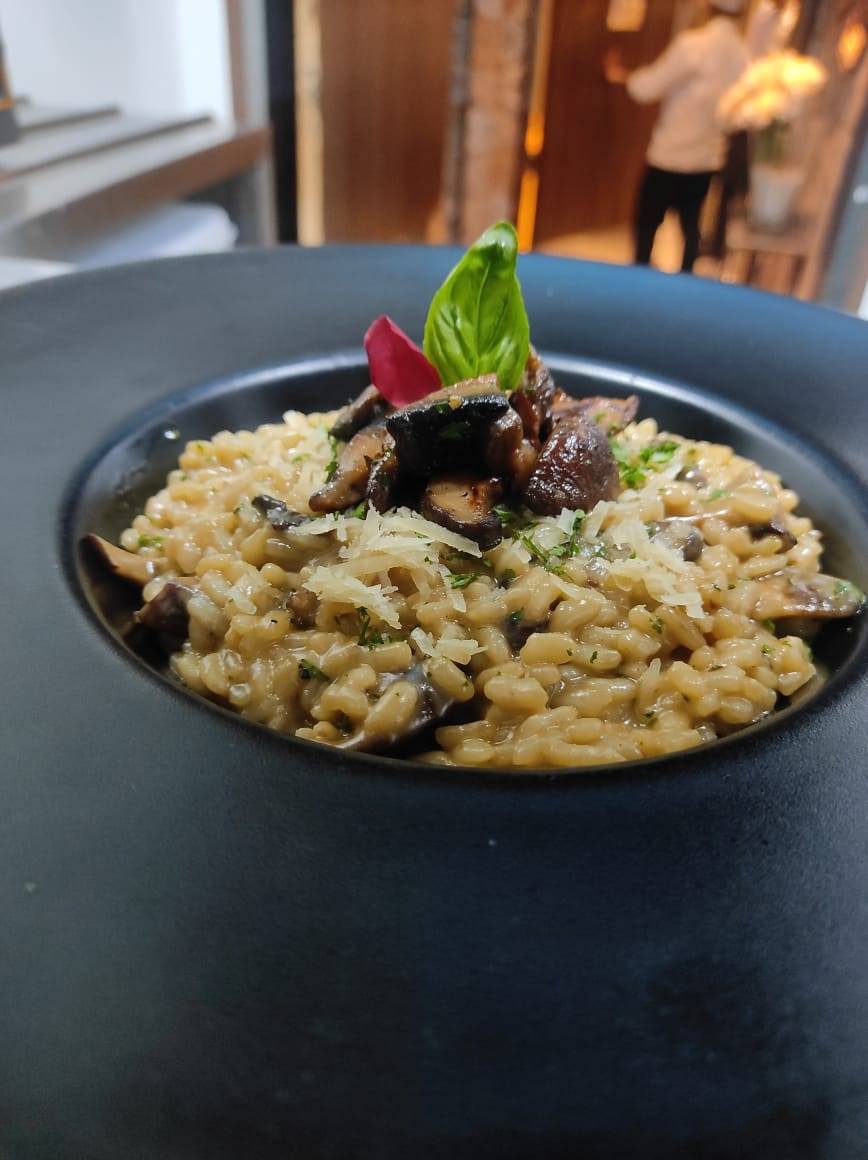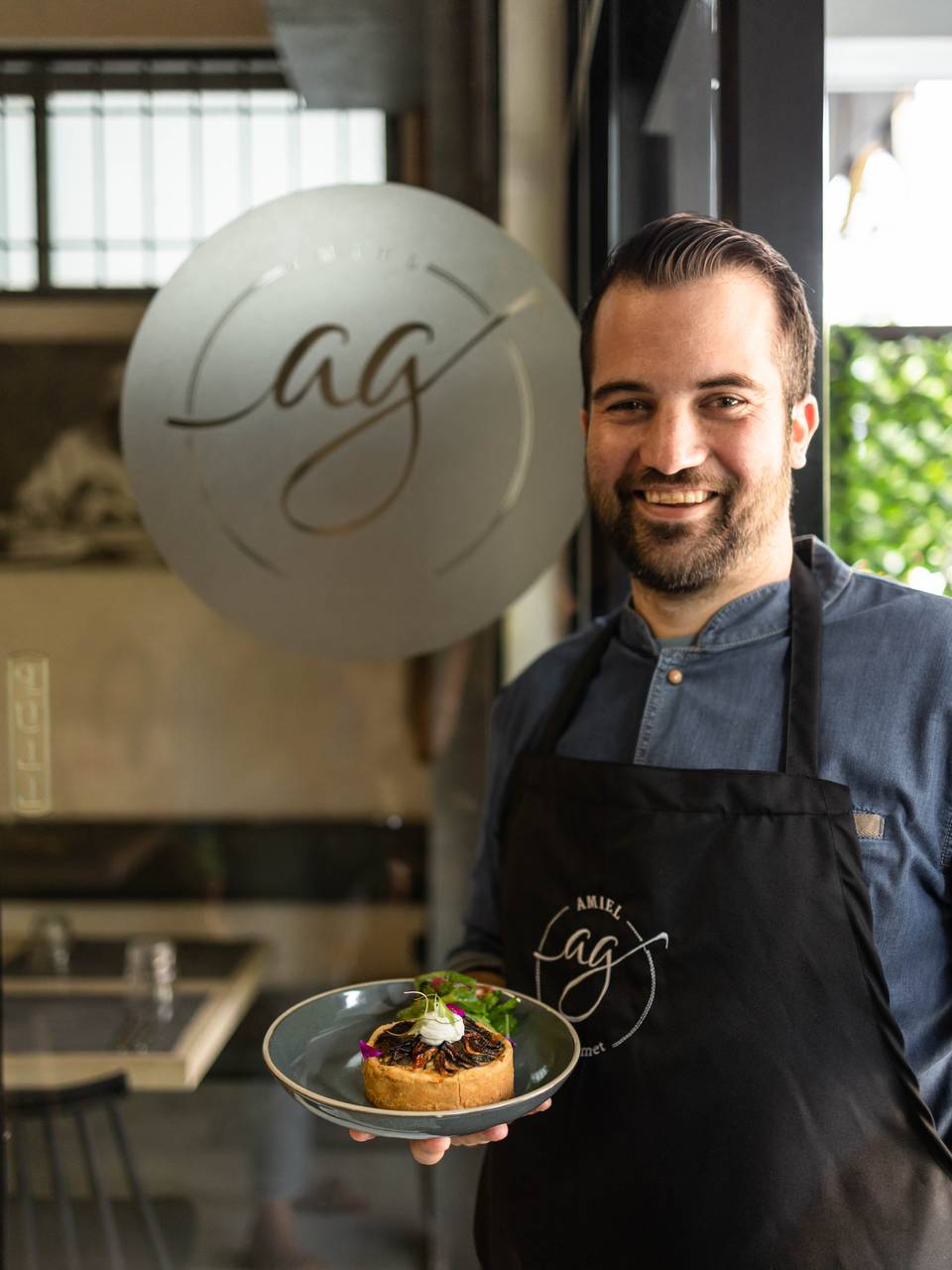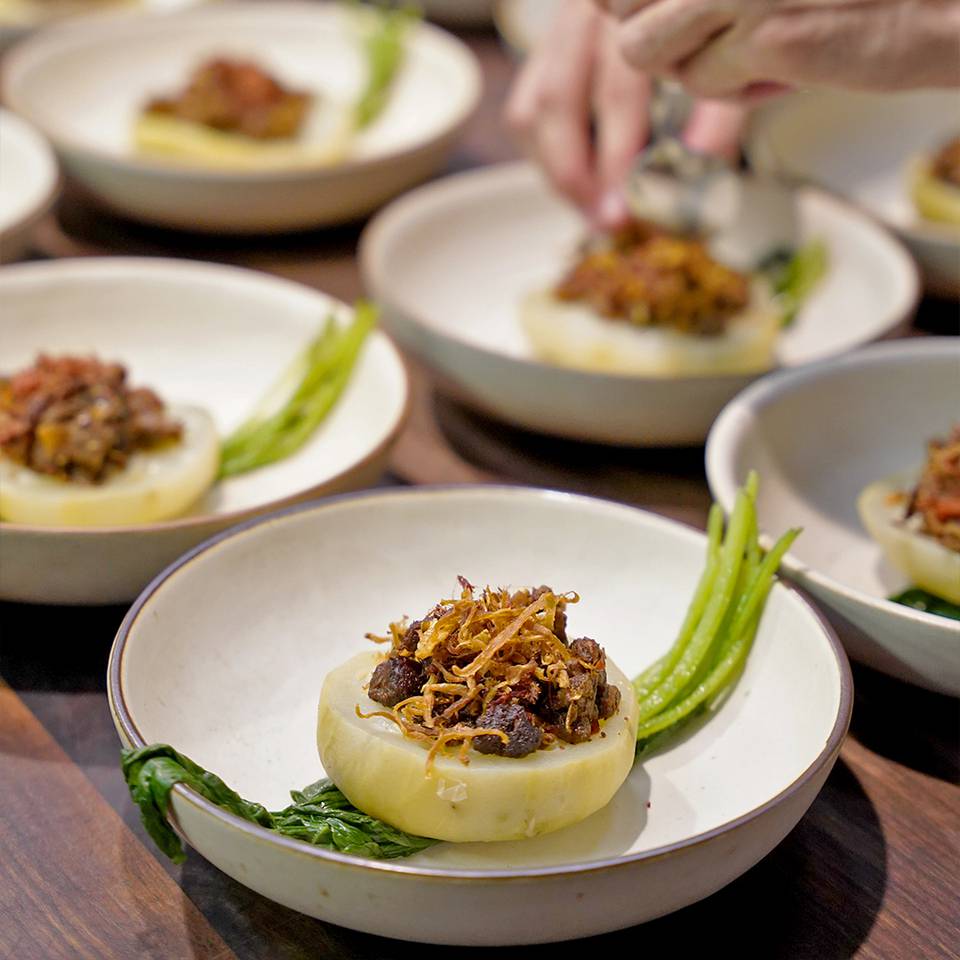The Yoga House: Dal Without The Tadka
Oct 11, 2019, 11 34 | Updated: Oct 11, 2019, 11 34
“Bangalore gives you a lot of space. Bangalore is really peaceful; the weather is fantastic and the people are amazing,” says Ajit Tapaswi, owner of The Yoga House. And so now that Mumbai’s top health café has declared that this city is an ideal second home and because they’ve been made to feel so welcome, they’re returning the favour.
It’s a bungalow in a cosy lane in Indiranagar. Plants and creepers spill over and when you enter, the soothing pistachio green walls silently guide you into the open space that forms the cafe. The peace and calm that one associates with yoga is what dictates the ambiance.
With nothing but a rustic looking, corrugated roof that wears the texture of handmade paper, the café is lined with white tables and chairs. Copper tumblers dot the tables, a brilliant contrast to the white. Ajit Tapaswi sits on a long cushion on the floor of a path sectioned off and amidst what is the garden area of The Yoga House.
“I was looking to open a yoga house in Italy where I was living and working as a model. I had to come to Bombay on some work, when I met Maud (his partner in the project) three years ago through common friends. She wanted to start something like a yoga studio in India and I was like, I have this concept. And we got it together.”
That, in short, is how The Yoga House – a joint creation of Maud Chuffart and Ajit Tapaswi - came to be, first in Mumbai and later in Bangalore.
“One day, the father of one of our yoga instructors, a gentleman from Bangalore suggested we check the city out. A year later my partner and I flew down and saw this space. (He waves his hands around showing me the area). I asked about the rent and I was like, this is really awesome. We had nothing to lose. We had some extra money. And even if the venture wasn’t going to do as well as the one in Bombay initially, we would still be able to manage. And that’s it,” Tapaswi says.
A Thakur (a family title held by people belonging to the higher caste of Brahmans in North India) from UP, Ajit grew up in a traditional Hindu household where yoga was a part of his everyday lifestyle. His grandfather is the one who introduced him to the disciplines of yoga. “Today yoga is so confusing. Everybody has his or her own version of yoga. And I’m glad I don’t have that.”
When asked what the other versions were, Tapaswi uses an amusing food analogy to explain.
“It’s like yellow dal and everybody adds a different tadka to it. I do not sell the dal with the tadka, I sell the yellow dal to them. It’s not that yoga is mine. It doesn’t belong to anybody. I tell people that it should evolve inside you because yoga is meant for the individual. It cannot be taken away by anybody. A simple dal. That is my gift to people.”
And how do people know that they are getting the real thing? Ajit explained, “We give a free community class on Sunday and the class speaks for itself.”
Chuffart, is from France and takes care of The Yoga House in Mumbai while Ajit runs the show here. Like Tapaswi, Chuffart too is passionate about yoga. Her introduction to it was from a student of BKS Iyengar, one of the most well-known yoga teachers in the world.
Now a year-old, the Yoga House is a café, a yoga studio, a boutique and offers accommodation as well.
Why so many roles? “Because yoga is a lifestyle,” says Tapaswi. The café provides healthy food; the boutique provides people with products that help uplift this lifestyle. And to complete the circle, there are three rooms – the garden room, the blue room and the white room – where members (whom Tapaswi has to personally approve) are welcome to stay for as long as they like. One of the residents has been there for seven months now. The cost of a week’s stay ranges from Rs 16,500 to Rs 23,000 with free breakfast and yoga classes.
On the inside, the house is painted blue, a sky blue that complements the green on the outside. The boutique and a small seating area they refer to as the Library share the ground floor. There are three bookracks with books on yoga and nothing else.
The blue room and kitchen are also located on the ground floor while the yoga studio, the white room and Ajit’s room are on the first floor. A third room, the garden room, is on the passage that divides the house and the café. There is also a terrace at the very top.
The café’s cuisine is worldly though limited, since it is entirely vegetarian. Starting with Indian items like poha (flat rice), the menu goes on to include salads, bento boxes and even a trademark recipe called Quinoa burger. Ajit points to the various herbs and plants around – vanilla, coriander, lemon grass and avocado – all organically grown of course.
There is no specialised chef in the kitchen. Ajit and Maud cook the food themselves. They also have a few helpers who’ve been trained by the duo. The staff lives at The Yoga House.
The boutique is bare with a single row of basic yoga wear and little shelves holding products like handmade soap, khadi towels, jars of honey, bottles of rosewater, incense, copper and tin utensils and The Healhty Laddoo – purposely spelled this way to draw attention - which Tapaswi’s mother sends over every Sunday from Pune.
Each product in the boutique is sourced from experts around the country. The rose water is from Indore and made by an ‘herb man.’ The utensils are custom made for The Yoga House by artisans in Calcutta and Orissa. The incense is from a trader in Kannauj, UP who exclusively exports only to perfume capitals like Paris.
The Yoga House, it seems, is all about authenticity.
Classes are held in the yoga studio on the first floor. Ajit teaches twice a day, in the morning and evening. However, there are other teachers – resident and guest.
The classes have an average of three to four students, all of whom take up membership rather than pay by the class because not only is it cheaper but it also brings in discipline. Men and women, young and old, experienced and novices – the class is a mix. But how does a stiff-jointed fresher fit in among the already flexible?
“Yoga is not about bending and touching your nose to your toes. It’s about knowing that your nose can touch your toes. It’s not about physical but total mental training. I have practiced for 15 years but even today, I don’t do a headstand for more than five seconds. I can do it for 15 minutes but five seconds is what I am,” he explains, adding, “Yoga is meant for everybody.”
While a lot of celebrities grace the house in Mumbai, here in Bangalore, a city bereft of movie stars and super models, ordinary families have warmed up to it. With events like the Farmer’s Market, where artists and musicians are invited to perform or display their creations, The Yoga House has become a shoulder to lean on for many.
“It’s a home for people. They can do whatever they feel like. You can go sleep in my bedroom, that’s how open it is,” Ajit says comfortingly, “you know, just be. Do your work, don’t do your work. Eat, don’t eat. I don’t market the place because I want the right kind of people to come here. I want them to know that this is a house, for me and for them. And if you know that this is your house, you won’t mess with the place.”







